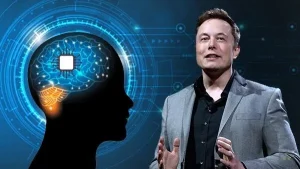Artificial Intelligence, popularly known as AI, is rapidly advancing and molding the way we live, learn and work.
Hailed as game-changing technology, it mitigates human effort and error through its capacity to learn patterns and execute tasks with unmatched precision.
And one sector that’s significantly feeling the impact of AI is academic writing services.
The coupling of AI technologies within these services is not just a futuristic concept anymore; it has become today’s reality.
The traditional “pen-and-paper” approach is increasingly being replaced by innovative digital solutions facilitated by AI.
This evolution significantly elevates the quality and efficiency of delivering bespoke academic papers fit for modern education standards.
Imagine having access to world-renowned academics, all at your fingertips?

That’s where artificial intelligence comes in handy! Whether you’re seeking help with essays or dissertations, research papers or personal statements – modern Writing Services leveraging AI can make this possible seamlessly.
So you might be asking yourself: How exactly does artificial intelligence alter writing services? What benefits does it offer to students? Well dear reader, let’s delve into this topic further.
Evolution of Writing Services

There was a time when writing services were entirely human driven, relying heavily on the knowledge, competence and speed of individuals.
Do you remember those days?
You would hand over your assignment to an expert, who then would painstakingly conduct research, collate information, draft the essay and eventually deliver you the final written piece.
However, with technology taking giant leaps forward in every sector – academic writing has evolved too.
The inception of internet heralded digitalization of these services. Slowly but surely giving rise to ‘online tutoring’ and virtual writing assistance.
Now fast-forward to today’s era where artificial intelligence is added into this mix! It’s like giving superpowers to these online platforms.
AI allows for automation which brings in efficiency. It can highlight grammar errors and word repetition instantaneously while suggesting corrections or alternatives simultaneously!
But here comes the best part! Ever felt limited by the territorial constraints of your tutor’s reach? Well, AI eliminates geographical boundaries completely!
Algorithm based systems tirelessly work round-the-clock catering students from different time zones!
Leapfrogging from individual pushing pens onto paper to globalized automated systems – welcome to modern academic writing services powered by Artificial Intelligence.
AI Technologies Enriching Modern Academic Writing Services

So, how exactly do AI technologies revolutionize writing services? Let’s get into the nitty-gritty of its benefits.
First off, combating plagiarism. In an academic sphere where originality is paramount, AI elegantly strides in to ensure just that.
Complex algorithm-based systems can scan through quintillions of web pages in a split second, leaving no room for uncredited content to slip away unnoticed. Incredible, don’t you think?
Next to step on the stage is grammar correction algorithms! Powered by machine learning and natural language processing tools, such systems can identify not only basic grammatical errors but also suggest improvements in sentence structure or syntax.
They even guide you towards better vocabulary choices! You could potentially get your paper read by ‘Shakespeare’, which might not have been possible otherwise.
And let’s talk about efficiency – who wouldn’t appreciate getting their work done faster?
AI-powered writing services drastically cut down delivery times as machines can chug along 24/7 without needing breaks!
In essence, AI transforms traditional writing services into high-tech platforms that guarantee originality, deliver immaculate grammar and operate on efficient timelines. Isn’t it mind-bogglingly brilliant how far technology has taken us?
Personalizing Academic Assistance with AI
Now that we’ve touched upon the basic benefits, let’s scale up and view how AI takes writing services a notch higher – by offering personalized assistance like never before.
Imagine having your very own academic companion who understands your unique writing style, learning pace and proficiency levels.
Isn’t it wonderful to have someone who evolves along with you? Fantastic ! That’s exactly what AI-infused writing technologies offer.
These systems can analyze a student’s past submissions and understand their individual learning needs.
On top of this personalized approach is the universal accessibility that online platforms afford! Be it 3 AM in London or midday in Sydney, students can gain access to premium writing assistance round-the-clock irrespective of geographical barriers.
You are no more expected to make do with limited academic resources available nearby.
AI-powered tools also provide constant support, be it for last-minute clarifications required hours before submission deadlines or guidance needed for recurring weak areas as indicated by their algorithms.
In summary, through personalization and universal accessibility, artificial intelligence amplifies the effectiveness of modern academic writing services to an unprecedented level.
What’s not to love about this tech-driven revolution in education?
The Future: What next for AI in Writing Services?

Diving a bit into the future, it’s clear that artificial intelligence has just begun to scratch the surface of possibilities within academic writing services. So, where could this widespread integration of AI lead us next?
The potentials are truly limitless. Researchers are currently working on systems able to draft entire sections of papers, cutting down the time taken for structuring information significantly. Imagine how much time students could save and use for other academic pursuits!
It’s also not a far-fetched fantasy to predict that these systems will get increasingly adept at customizing assistance to individual learners – perhaps even going as far as adapting their vocabulary and tone in line with user preferences!
However, advancement doesn’t come without its own challenges. The intrusion of advanced tech may stir debates about authenticity and originality of thought in student work.
Balancing between providing assistance while encouraging independent thinking will be critical.
Unquestionably though, the future is exciting! As advancements in AI drive forward relentlessly, there will be an expanding toolkit of automated solutions ready at students’ fingertips!
Can you picture yet how much more efficient and personalized academic writing services can become?
Conclusion
Stepping back to see the larger picture, it’s incredibly remarkable how far we have come. We’ve transitioned from analog to digital, then onto artificial intelligence now shaping our academic endeavors.
AI integration within academic writing services is no longer an imaginative concept for futuristic sci-fi novels—it’s happening right now in our very world! The benefits are tangible and wide-ranging, from ensuring your work’s originality through plagiarism checks to streamlining grammar corrections and delivering assignments swiftly and efficiently.
But let’s not stop there. With AI getting smarter by the day at personalizing assistance down to individual students’ needs and learning patterns, the potential is sky-high for further revolutionizing educational-gauged help.
Of course, as with any tech advancement, challenges will emerge that need addressing – like striking the right balance between offering assistance without compromising authentic development of individual thinking skills.
However, looking ahead into the promising horizon of what’s yet to come – one thing seems crystal clear: The future of modern academic writing services holds thrilling prospects with artificial intelligence pioneering its path.
So why wouldn’t we embrace this profound transformation making our lives easier? Isn’t it time we welcomed our new ‘digital assistants’ into our academic journeys?




